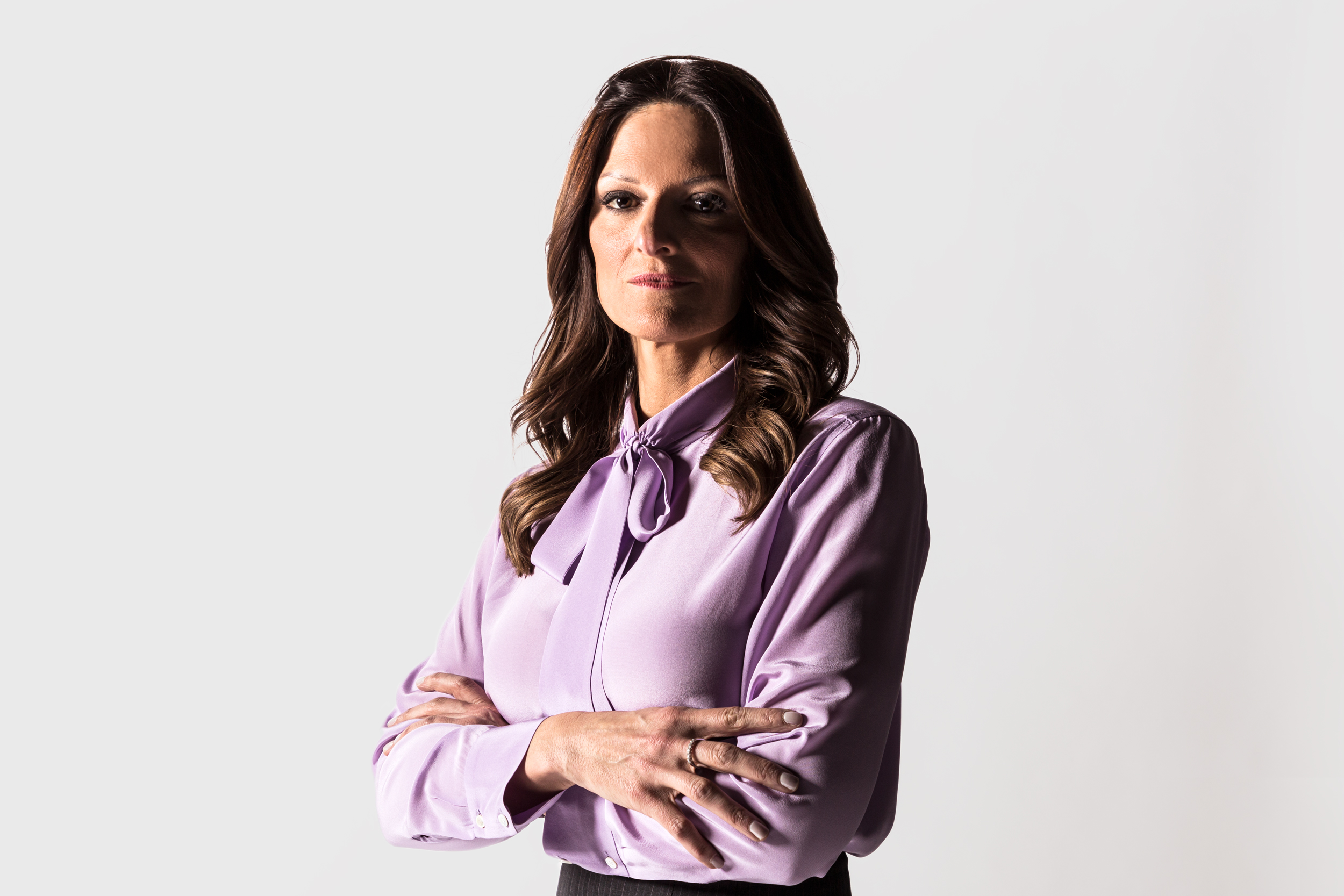- Harvey Weinstein’s lead defense attorney, Donna Rotunno, calls herself the “ultimate feminist.” She’s built her career defending men accused of rape.
- She’s defending Weinstein against five felony counts of rape and sexual assault and has grilled his accusers during cross-examination.
- Feminists and Weinstein accusers say they’ve been repulsed by her comments, accusing her of victim-blaming.
- Rotunno says women have fought for decades to be viewed as equal to men, and now they need to start taking on some of the responsibility that comes with it.
- Visit Insider’s homepage for more stories.
Not long after the star witness in Harvey Weinstein’s rape trial testified about a traumatizing sexual encounter with the Hollywood producer and another woman, defense attorney Donna Rotunno approached the lectern for her cross-examination.
She presented the accuser, Jessica Mann, a 34-year-old hairstylist, with copies of an unpublished blog post that prosecutors recovered from her phone.
“You told the jury the threesome was horrifying because it was something you didn’t want to do,” Rotunno said. “I would like you to read the note from your phone to the ladies and gentlemen of the jury.”
“Do I have to?” Mann asked, turning her head toward Justice James Burke.
"Yes," Rotunno said.
After a long pause, Mann began reading the years-old post, describing a threesome with an unnamed "older man" and an Italian woman, seemingly the same one she mentioned in her testimony.
Loaded with jokes, expletives, and erotic descriptions of the woman's body, the written version characterized the encounter as exciting, not upsetting. At one point it compared Mann to a "14-year-old boy about to lose his virginity."
"This is what really happened," Rotunno said after Mann read.
Mann disagreed. She said she wrote the post only because she "wanted to reframe it for comedy."
Rotunno pelted Mann with questions and accusations with such force that at one point Mann had to ask her to slow down.
"You were manipulating Mr. Weinstein so you'd get invited to fancy parties, correct?" Rotunno asked. "You wanted to use the power he had, correct? You wanted to benefit from the power."
Rotunno spent months preparing for this cross-examination, an opportunity that could make or break the case as well as her career. Her approach, exacting and at times hostile, reflected a strategy she'd honed over a 15-year career defending men accused of rape. Of the 40 sex-crimes cases she's tried, she's lost one.
Rotunno joined Weinstein's defense last spring, after he burned through a number of lawyers in the leadup to his rape trial. He sought a lawyer who wouldn't appear too intimidating when cross-examining the accusers.
"He wanted a woman," Rotunno told Insider, unbothered. "The optics of it are just different, a woman walking in with him."
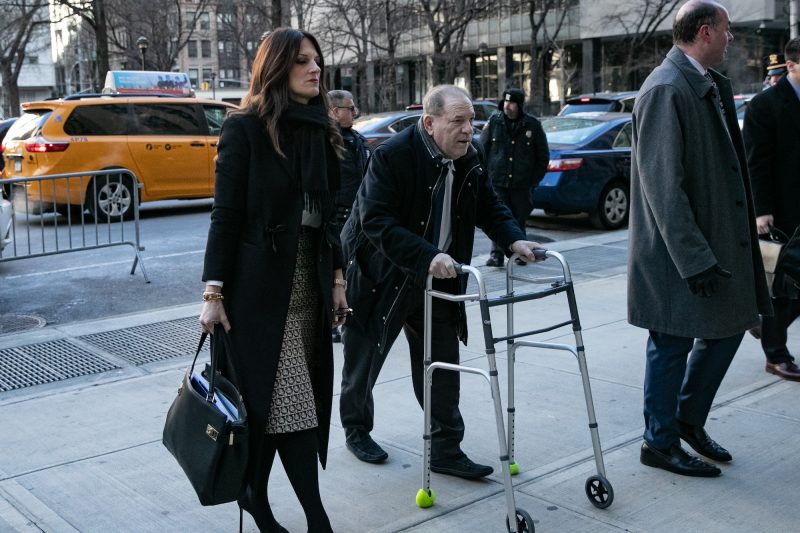
Every day since the beginning of the trial on January 6, she's been photographed in designer heels towering over her client, who trudges in and out of the courthouse hunched over his walker. She's become the face of Weinstein's defense team, racking up appearances on CNN and "CBS This Morning" where she's become a kind of provocateur by challenging the credibility of Weinstein's accusers and lamenting that her client's life "has been ruined."
In addition to fighting for Weinstein's acquittal, Rotunno is waging a broader crusade against both the #MeToo movement and a culture she believes infantilizes women and rewards victimhood. She relishes in the anger she provokes and calls herself the "ultimate feminist," though she's representing one of the most notorious alleged sexual predators in America.
"Our justice system has decided that just because someone says something doesn't mean it's true," Rotunno told Insider. "This notion of people saying 'this is my truth.' Well, there's no such thing. There's no such thing as your truth or my truth. There's the truth. And my job is to get to whatever it is."
Her job is not to absolve Weinstein of the roughly 100 allegations that have flooded in since 2017. The criminal case has been whittled down to two accusers: Mann, who alleged Weinstein raped her twice in 2013, and Mimi Haleyi, a former "Project Runway" assistant who alleged the producer forced oral sex on her in 2006.
But Rotunno knows she has the weight of an entire cultural movement working against her client, and that the jury may feel pressure to convict him.
Rotunno wants women to 'take on the risk of making different choices'
The problem with women today, Rotunno told Insider in an interview last month, is that they don't take responsibility for their decisions.
She described growing up admiring her mother and grandmother, both independent women who did as they pleased and were subservient to no one, she says.
"These are women who never made excuses for their lots in life," Rotunno said. "Women who said, 'I can do anything.'"
But it's women today, Rotunno went on, who have refused to claim the same agency and instead blame men.
"Everybody says, 'Oh, are you telling women that if they go to hotel rooms they deserve to be raped?' No," Rotunno said. "What I'm saying is that after having drinks and being at a party and sitting in a bar with somebody and going to their hotel at midnight, don't be so ridiculous as to say, 'I thought I was going to see a script.' At some point, where is the responsibility?"
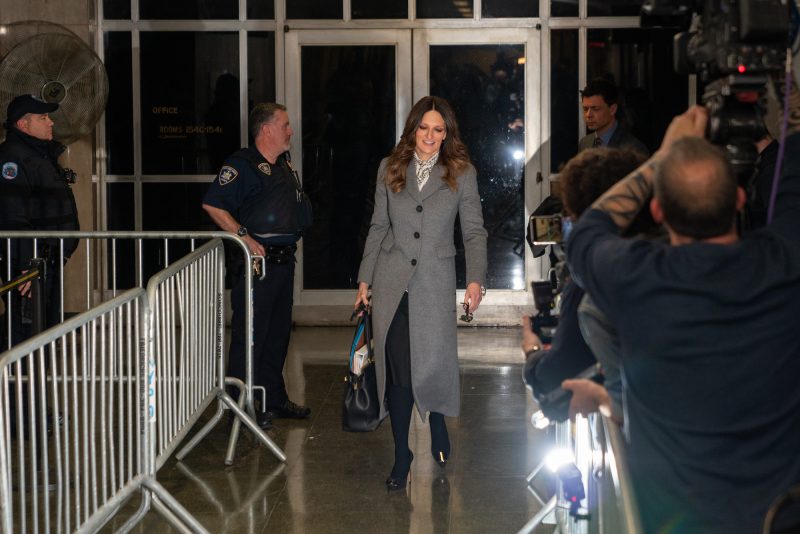
In Rotunno's view, women have fought for decades to be viewed as equal to men. Now, as gender equality has become more pervasive, Rotunno believes women have abdicated the responsibilities that come with it.
"Nobody wants to say, 'If you want real equality, and you want things like #MeToo to not happen to you, you have to take on the risk of making different choices,'" Rotunno said.
Those choices have become a key theme in Rotunno's defense.
On Monday, Rotunno pressed Mann on why she chose to follow Weinstein to a Manhattan hotel room the day she alleged that he raped her. Mann, who previously had consensual sexual encounters with Weinstein that she described as uncomfortable, explained that she intended to meet the producer at her hotel's restaurant for breakfast with friends, but panicked when he arrived early and asked the hotel staff to give him his own room.
Mann testified that she followed him upstairs so that she could confront him over why he was checking in to her hotel - but Rotunno interjected.
"You could have said, 'Harvey I'm not going up there,'" Rotunno said. "All I'm asking you is, why you didn't make the choice to walk out the door? You made the choice to go up to the hotel room, knowing what had happened in the past."
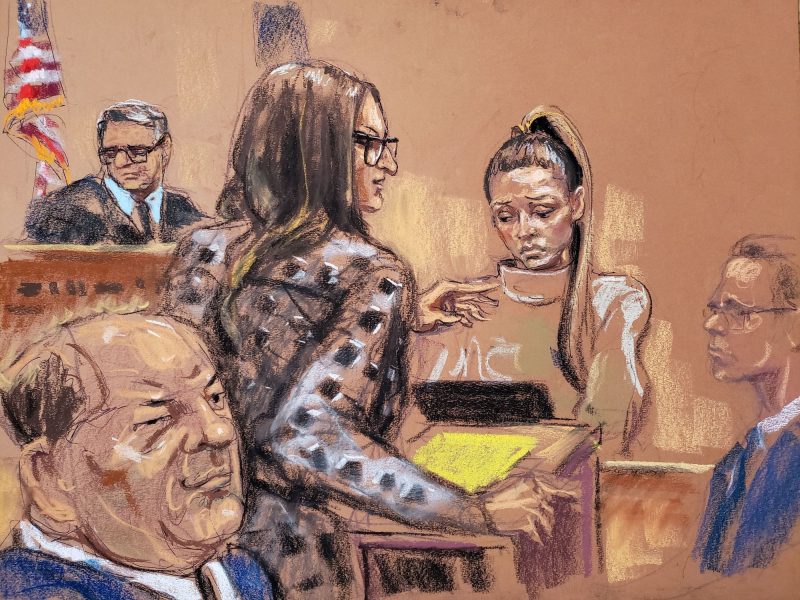
To modern feminists and Weinstein's accusers, those questions smack of victim-blaming. The experts and victims with whom Insider spoke balked at Rotunno's views. One gender-studies professor argued that her ideology fails to account for the power imbalance between many women and the predatory men in their lives.
But Rotunno has scoffed at that supposed imbalance and grown irate in court when the prosecution has accused her of victim-blaming. At one recent hearing, Rotunno said it was "insulting" to suggest that women can't make their own decisions.
Even if the women were trying to appease Weinstein out of fear of retaliation, or to protect their jobs, Rotunno said that doesn't explain why they willingly met him when they knew he'd likely make sexual advances, if they didn't truly want those advances.
"Those are still choices," Rotunno told Insider. "You're still in a position where you are choosing a career over your own self-worth. You are saying that 'this choice may get me a job, which is more important to me than my dignity and my self-worth.'
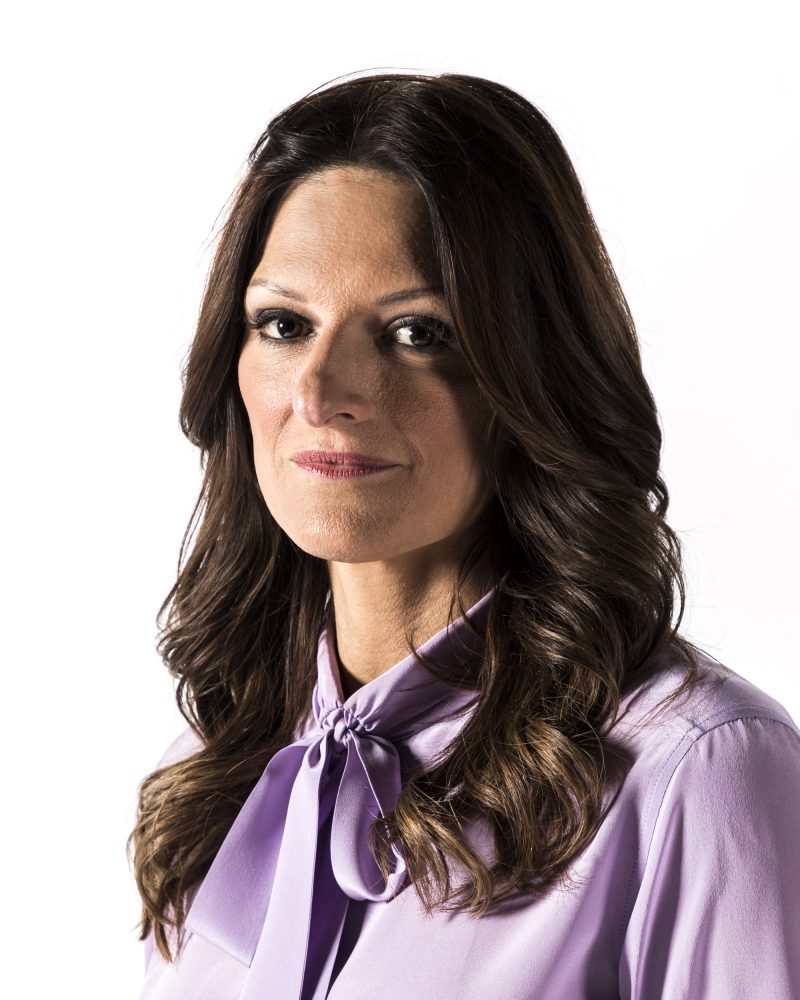
"Men are not going to stop asking women to go to the hotel room," Rotunno went on. "Women have to stop going. Because if there's one woman left willing to do it, it's going to continue."
Rotunno describes those views as feminist, but Leigh Gilmore, a professor of women's and gender studies at Wellesley College, told Insider that Rotunno's feminism is an old-fashioned variety that lets predatory men off the hook rather than demanding they be more responsible.
Gilmore describes Rotunno's views as a "neoliberal version of feminism" that emphasizes individual choice above all else.
"In the absence of looking at the structural inequalities around gender and race and sexuality and class that obviously exist, it sort of seeks to wipe all of that away and then to task women with responsibilities that they can't access as easily as that model suggests," she said.
Rotunno's feminism essentially suggests that women should prevent their own victimization by staying out of men's way, Gilmore added. "It can hardly be an adequate and adequately robust version of feminism," she said.
'Look at yourself in the mirror,' one Weinstein accuser urged Rotunno
Though Rotunno mostly declined to comment on any allegations against Weinstein not part of the criminal case, she suggested that many of the women's claims were overblown or exaggerated.
"If you look at any circumstance where a woman said no to Harvey ... you know, 'Can I have a massage?' 'No.' They leave," Rotunno said. "There was never any circumstance where he was forcing somebody to stay. And there was never any situation where those people lost work because of it."
That doesn't ring true to Rowena Chiu, Weinstein's former assistant. In fact, at least two other women have pressed criminal charges against Weinstein in Los Angeles and alleged that he prevented them from leaving hotel rooms and raped them, and actresses such as Ashley Judd and Mira Sorvino have said they believe they lost work because of him.

While Chiu isn't involved in the trial, she alleged that, in 1998, the producer summoned her to a hotel room, made a number of racist comments about her Chinese heritage, peeled off two pairs of tights she was wearing, and begged for "just one thrust."
Chiu said she managed to wrestle herself away from him, leave, and eventually negotiated a settlement barring her from speaking about the incident in exchange for $213,000 and a promise that no woman at the company would endure a similar attack.
But Chiu told Insider she struggled to find work in the film industry after leaving Weinstein's production company, Miramax, and she believes that was his doing. She also said her encounter with him set off a disastrous chain of events that eventually led to a suicide attempt.
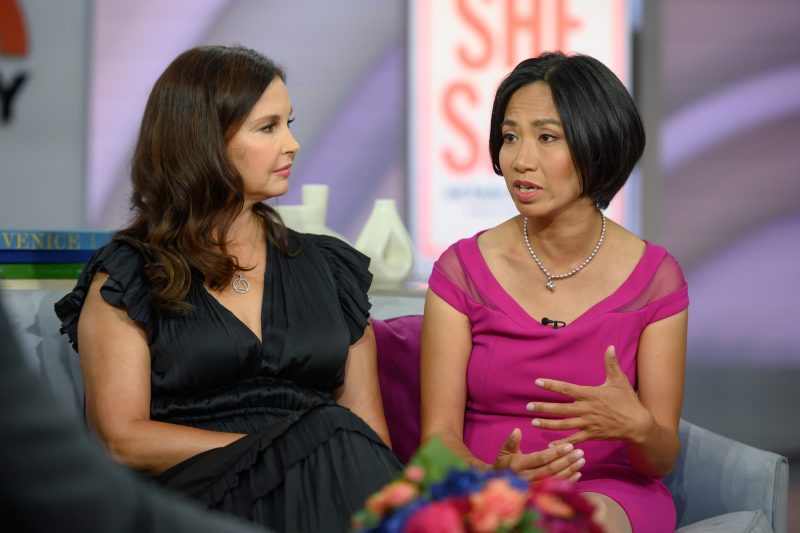
Upon hearing Rotunno admonish women like her for going to men's hotel rooms, Chiu grew indignant.
"One of the accusers was 16. I was 24. And she is trying to say that at 16 and 24 we were, like, 'Oh, well, I might get raped, but hey, I want a career in the film industry, so I'm going to put myself in the path of a rapist?'" Chiu said. "I mean, Donna Rotunno, look at yourself in the mirror. How can you excuse yourself by trying to make this argument? It's disgusting and despicable."
Rotunno has turned to lines of pointed questioning to frame the Weinstein allegations as the result of the accusers' poor choices, not from her client's wrongdoing.
When she cross-examined Annabella Sciorra, the actress who said Weinstein raped her in her apartment during the winter of 1993 or 1994, she asked why Sciorra had never gone to the emergency room, called the police, or confronted her doorman about letting Weinstein inside. She also asked why Sciorra later accepted a role in a Miramax film.
She even cast doubt on Sciorra's efforts to fight back against Weinstein during the alleged attack. Why didn't she try to scratch him? Poke out his eyes? Sciorra replied that she tried to fight back, but that Weinstein was "too big."
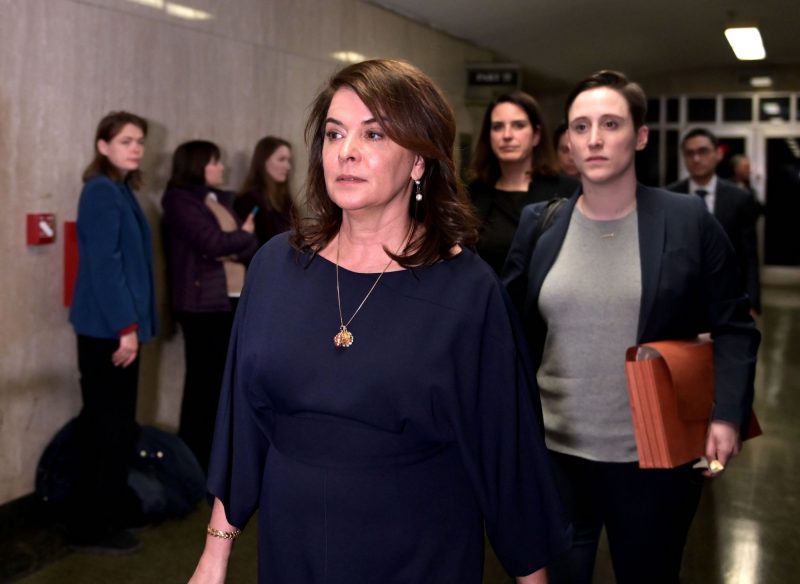
Discrediting an accuser without coming across as a rape sympathizer during cross-examination isn't easy, Lara Yeretsian, a criminal-defense lawyer in Los Angeles, told Insider. Sometimes it means putting on a friendly or empathetic face. Other instances call for a more confrontational stance. Either way, it's a necessary job.
"They've got to do it. I mean, how do you show these people are lying? There's no other way to show somebody is not a credible witness," Yeretsian said. "[Weinstein] could go to jail for life."
But Rotunno's strategy - reminding the jury as often as possible that Weinstein's accusers did not behave as stereotypical victims - could backfire.
Cheryl Bader, a law professor at Fordham University and former prosecutor, told Insider that Rotunno shouldn't underestimate the prosecution's case that Weinstein's power and wealth left women particularly vulnerable and reluctant to directly confront him or report him to police.
"Look, some attorneys, they become very focused on their own theory, to the exclusion of really seeing the potential in the prosecutor's theory," Bader told Insider. "But that tends to be more of a rookie mistake."
Rotunno is no rookie.
So far, she's lost just one sexual-assault case
Rotunno said she always knew she'd be a lawyer.
As a 5-year-old, she and her father, Anthony, would watch the show "The Paper Chase," marveling at the Charles Kingsfield character, a tough and brilliant Harvard professor who specialized in contract law.
Her fascination with the law took her to the Chicago-Kent College of Law, where she developed a formidable courtroom presence, her father said.
"You're not going to outwork Donna, that much I can tell you," he told Insider. "Never."
As for her career defending accused rapists and sexual predators, it happened by chance.
"You handle one and then you handle another one, and they keep calling," Rotunno said. "This is something where I have developed a little bit of a niche, and here we are."
Rotunno began her legal career in Illinois as a Cook County prosecutor, but she left for private practice after three and a half years to take on criminal-defense work. By 28 she'd already begun winning big drug-trafficking cases. The next year, she started her own law firm.
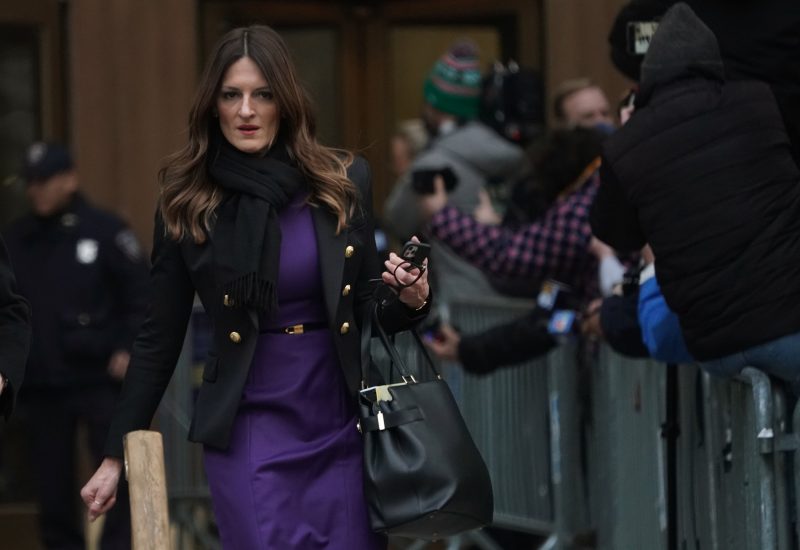
Her best friend, Kirk Williams, told Insider that it was immediately clear Rotunno's practice would be a lucrative one.
"She's meticulous," he said. "She understands facts and cases. She has a mind for detail and a recall greater than pretty much most people I've ever met."
Over the next 15 years, Rotunno's clients included dozens of sex offenders, along with alleged murderers, drug dealers, and white-collar criminals, a fairly typical caseload for a wunderkind defense attorney with a winning reputation.
In 2011 she defended Demarco Whitley, a high-school-football star accused of sexually assaulting a 15-year-old girl. The accuser alleged that Whitley and his teammate held her down in the back of the teammate's car while Whitley assaulted her.
Rotunno's first decision was opting for a bench trial, in which a judge - rather than a jury - would reach a verdict. A jury might not grasp the stakes of the charges, Rotunno reasoned. Whitley faced a minimum of 16 years in prison and a maximum of 60, and juries are not told the potential sentences during trials.
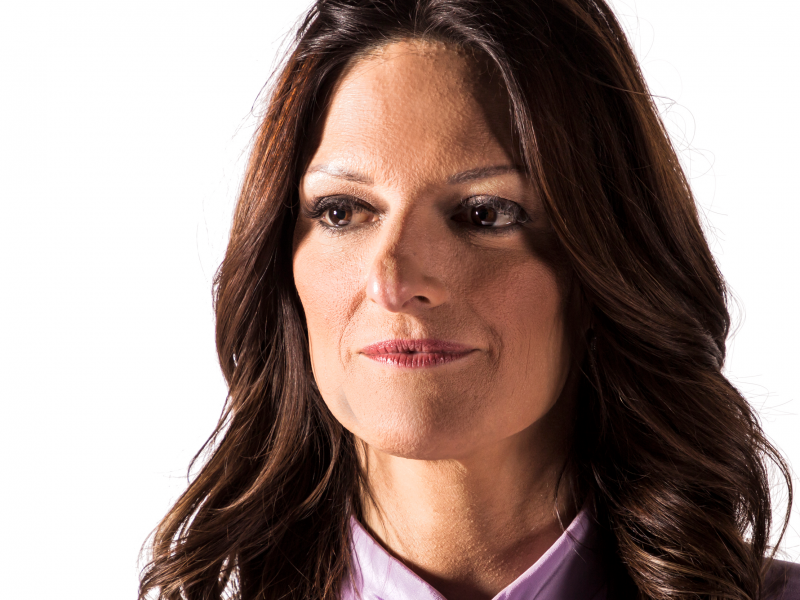
So she placed her faith in the judge, trusting he'd weigh the devastating effects of a conviction with such a weighty sentence. The choice would prove fatal to her defense, she now says.
Maria McCarthy, the prosecutor in the Whitley case, told Insider that Rotunno conducted a fair and professional cross-examination of the 17-year-old victim.
"She knew exactly what she wanted to get out of the victim, but I never saw her exhibit disrespect toward the victim during her cross-examination," McCarthy said.
In her closing statement, Rotunno pulled no punches, arguing that the girl consented to sex with Whitley and his teammate.
"She's a liar," Rotunno said, according to one local 2011 report. "She lies to her mother, she lies to police, she lies to her friends. Lies are lies - in a criminal trial, they matter."
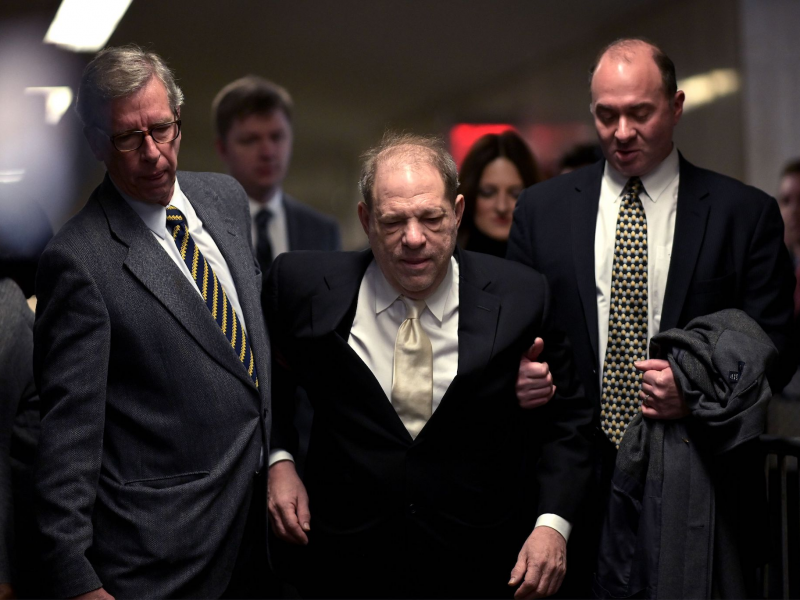
In the end, the judge convicted Whitley of all four counts of sexual assault and sentenced him to 16 years in state prison. So far, it's the only sex-crime case Rotunno has lost.
McCarthy said she respected Rotunno's conduct during the trial so much that the pair became friends and have remained so since. After losing the Whitley case, Rotunno reached out to the teenage victim, asking McCarthy to tell her that she hoped she wouldn't let the incident define her, McCarthy said.
"Donna's the type of defense attorney a prosecutor hates to try a case against because she's outstanding," McCarthy added. "And she's very prepared. And she doesn't miss anything. And she's persuasive."
Whitley's courtroom sketch is the only one Rotunno keeps in her office, she said. It's a reminder of the price her clients pay when she loses.
Rotunno says Weinstein made 'bad choices' - but that's not a crime
In the coming weeks, Rotunno and her team are set to take on a number of other witnesses who will either bolster or undermine Mann's and Haleyi's testimonies.
The trial is moving faster than anticipated. A verdict could come as early as mid-February.
It's entirely unclear which way the jury - seven men and five women - are leaning. Through nearly two weeks of witness testimony, they have sat stoic, many jotting down notes in large coiled notebooks.
Rotunno said she'll try to convince them that they don't have to like Weinstein - but they can still find him not guilty. The two concepts are mutually exclusive.
"Has he made bad choices? Yes. Has he cheated on his wife? Yes. Has he made morally bankrupt calls? Yes. But at the end of the day, that doesn't make him a rapist," Rotunno said. "And if we start convicting people because we think they're a bad guy, or they made bad choices, we're all in trouble."
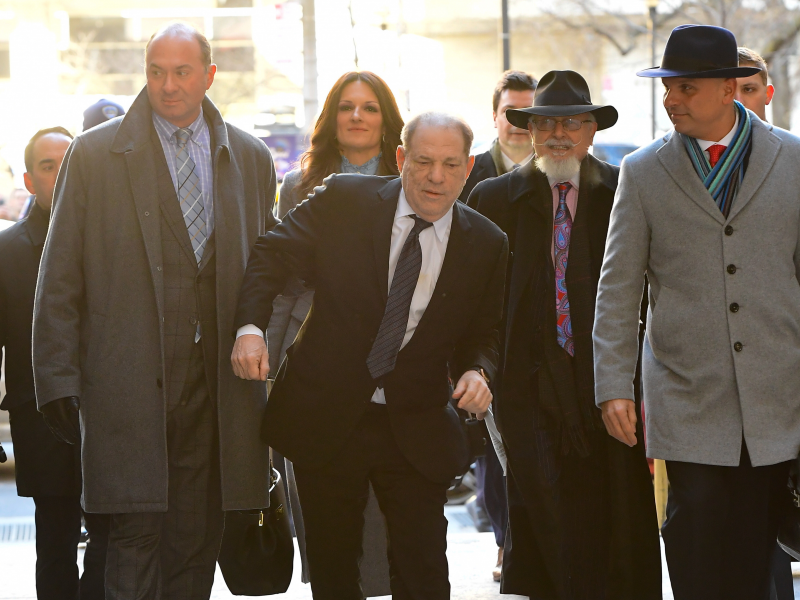
Weinstein's accusers have found Rotunno's attitude toward Weinstein's "bad choices" appalling. They say her inability to empathize or understand how frightened and intimidated they were by Weinstein's advances has infuriated them.
Lauren Sivan, who has alleged that Weinstein cornered her in a restaurant in 2007 and tried to kiss her and then masturbated in front of her and ejaculated into a potted plant, called Rotunno's views "ridiculous."
"You know, I'm so glad that she had such a scot-free rise in her career that she was never put in that type of situation," Sivan said. "That she's never had to deal with harassment on any level, that all of her business meetings have gone completely smoothly ... Well then, congratulations to her."
Rotunno said she acknowledges that sexual misconduct is a problem. The question of how to handle unwanted male attention often comes up in conversations with her 14 godchildren, 10 of whom are girls.
She said she even counseled one goddaughter's friend who had been sexually assaulted, telling her it was important to contact the police immediately and that problems could arise if she waited.
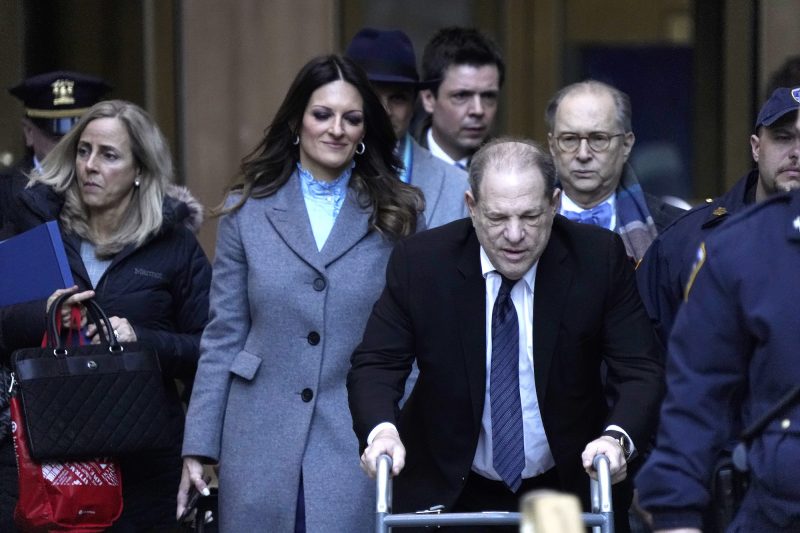
Rotunno said she often receives unprompted and sometimes lewd comments from men about her appearance. But she said the difference between her and #MeToo accusers is how she handles it.
For instance, she said she recently stopped to say hello to an old boss, a former Cook County prosecutor turned judge who wanted to congratulate her on taking on the Weinstein case.
Rotunno recalled that the judge joked that he would soon be asking her for an autographed picture. "But I get to decide what you're wearing," he added, according to Rotunno.
Recounting the boorish comment, Rotunno threw up her hands, half exasperated and half amused.
"I was, like, 'You know what I'm doing right now - really?'" she said, before laughing it off. "Those things happen. But I'm not going to lose sleep over it, I'm not going to lose my job over it. I just sort of got a kick out of it. And I think sometimes we just take things too seriously."

